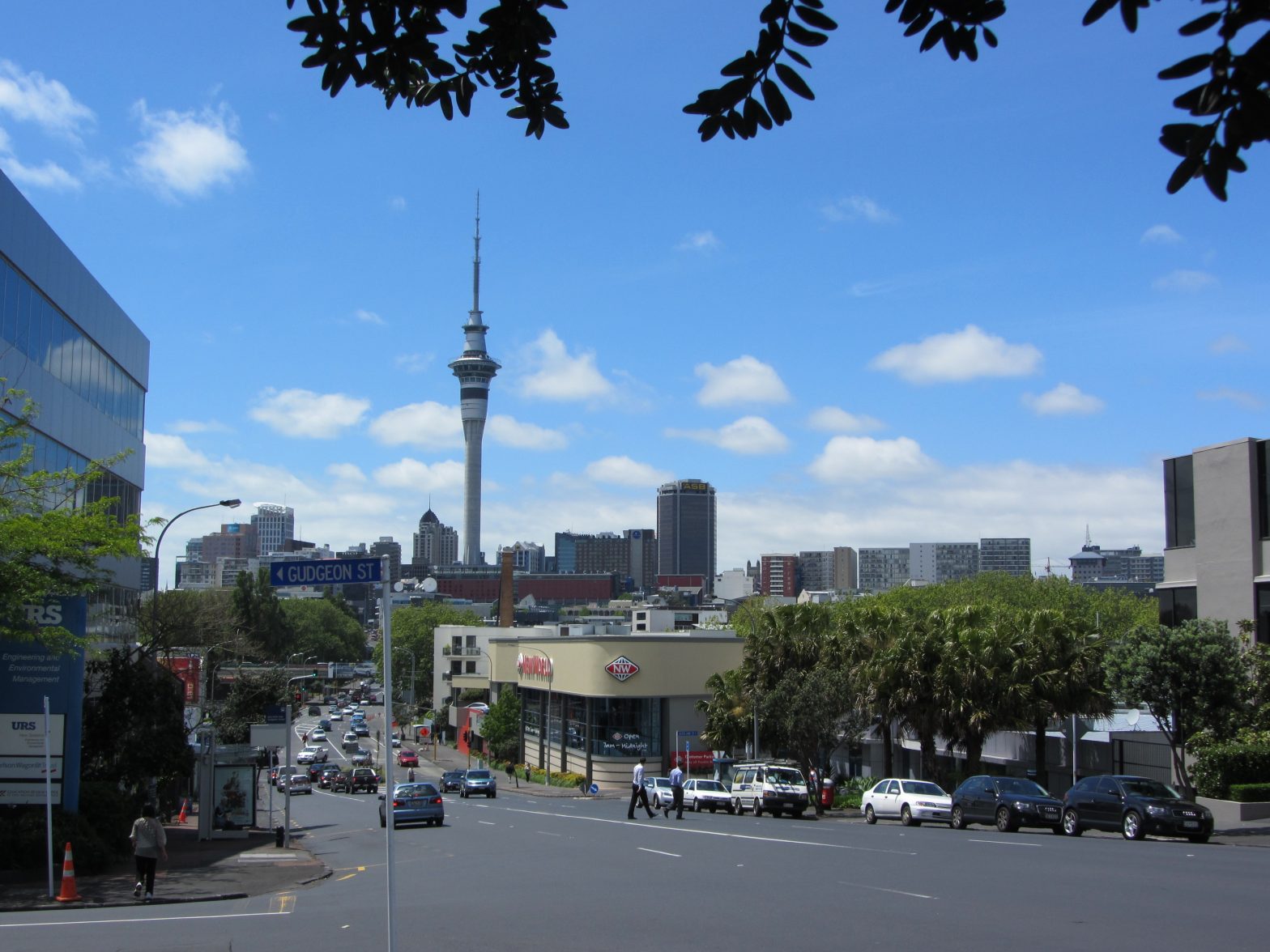
Photo: Auckland-Akos-Kokai
Shared mobility could halve vehicle CO2 emissions in Auckland
22 January 2018
by Nick Michell
Vehicle CO2 emissions and traffic congestion in Auckland would fall by around 50 percent if all private car trips were instead provided by shared mobility services, according to a study carried out by the International Transport Forum.
The study is based on a simulation of the more than 4.5 million trips undertaken on an average weekday by 1.3 million inhabitants in the most densely populated part of Auckland.
“Cars are dramatically underutilised,” Jari Kauppila, Head of Statistics and Modelling, International Transport Forum, told Cities Today. “They move passengers for 50 minutes during a 24-hour day on average–that’s less than 3.5 percent of the available time. And when they do what they were built for, they carry an average of 1.2. or 1.4 passengers rather than four or five. So the capacity use of a car is something like 1 percent. By increasing the number of passengers in each vehicle, everyone could get where they wanted with only 10 percent of the cars needed today for the same result.”
Replacing half of all private car trips with rides in shared vehicles would deliver a 20 percent reduction of CO2 emissions and reduce congestion by 17 percent. If one in five private car trips were taken over by shared mobility services, CO2 emissions would still be 15 percent less and congestion reduced by 8 percent.
Shared mobility makes jobs and services more easily accessible, especially in areas that currently have a low frequency of public transport services. The simulation of full-scale implementation of shared mobility improved the access to jobs by a factor of more than three.
“Private car users are the majority of the population in the Auckland area and many are neither willing to substitute their car trips with shared mobility services or to reduce their private car ownership,” added Kauppila. “The car is highly valued for its flexibility and convenience. But shared services like the ones we have modelled should be able to provide same level of service to be attractive. The most important factor for users is cost.”
A survey and focus group conducted for the study in Auckland showed that citizens are willing to share vehicles as long as seating is guaranteed. Cost of the service is the main factor affecting people’s preferences. Of survey respondents, 23 percent indicated they would likely shift to shared mobility. This figure was 30 percent among participants of the focus group who had received a briefing on shared mobility options.
“Participants in the focus group showed mostly positive attitudes towards shared mobility,” said Kauppila. “Interestingly, the respondents were willing to share vehicles with more travellers, rather than fewer. Some, however, would be willing to pay slightly more for being alone in a vehicle, so this is not a universal attitude. The likely early adopters of shared services would be existing public transport users, younger people and women.”






